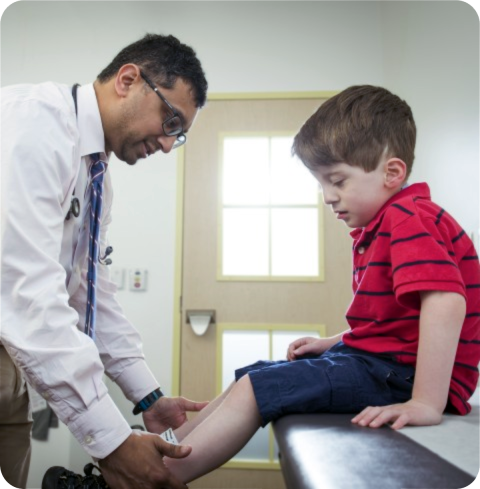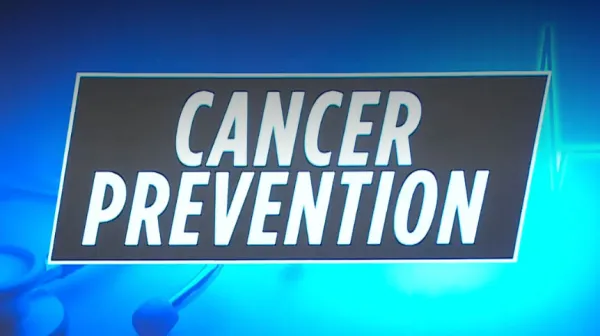
Cancer Prevention and Screening Clinic
Cancer Prevention and Screening Resources
Related Health Topics
Frequently Asked Questions
Our Clinic serves children and adolescents with one or more medical conditions that increase their risk of childhood cancer. Many of our patients are referred from the Texas Children’s Hospital Genetics Clinic and the Cancer Genetics Clinic.
• Cancer prevention and screening that can potentially improve survival rates and decrease treatment-related lifelong health issues
• Recommendations tailored specifically for your child based on the latest medical evidence, including physical exams, laboratory tests, imaging studies and other evaluations
• Review of screening results with parents and other physicians, as indicated, to determine further necessary tests
• An emphasis on patient- and family-centered care that addresses the psychosocial impacts of a child’s diagnoses on patients and their families
• Ongoing status updates and recommendations that are shared with you and with your child’s primary doctors, ensuring long-term support from diagnosis until they transition to adult care or their cancer risk diminishes
Before your first visit, it's helpful to familiarize yourself with our services and prepare any questions you might have. Here's what you can expect before your appointment:
• A staff member will gather medical records and test results from your child's previous doctors.
• Our doctors will examine your medical history and the latest research to determine the best screening and/or prevention methods for your child.
The child’s first visit will generally include the following:
• Review of medical and family history and any available medical records
• Physical exam and laboratory testing, if indicated
• Scheduling of imaging studies and evaluations by other specialists, if indicated
• Discussion of your child’s risk of cancer
• Introduction to the Clinic’s team members
Following your initial appointment, here's what you can expect during follow-up visits:
• We will discuss any screening test results with you either in person, via MyChart, or by phone
• Based on your child's results, we may suggest adjustments to the proposed screening plan or further testing recommendations
• Our medical assessment and any surveillance recommendations will be shared with your child's doctors
• Our Clinic continuously stays apprised of new recommendations for cancer prevention and screening guidelines and will share this information with your family and your child’s doctors
• As our patients approach adulthood, our Clinic will arrange a follow-up appointment for the patient and their family with the Cancer Genetics Clinic, if indicated and desired
• During this time, we can help navigate the process of transitioning to a new doctor and medical facility that specialize in adult care
• We will also provide guidance regarding financial issues, as well as psychosocial issues
Advocacy Organizations
Below, see a list of organizations selected from Beyond Diagnosis that are relevant to cancer prevention and screening.

Costello Syndrome Family Network (CSFN)
Condition: Costello Syndrome
Scope: Patient education

Neurofibromatosis Network
Conditions: Neurofibromatosis Type 1 (NF1), Schwannomatosis (SWN), NF2-related SWN Scope: Patient education and advocacy

A-T Children’s Project
Condition: Ataxia-Telangiectasia
Scope: Patient education and research funding

Children’s Tumor Foundation
Conditions: Neurofibromatosis Type 1 (NF1), Schwannomatosis (SWN), NF2-related SWN Scope: Patient education and research funding

Li-Fraumeni Syndrome Association
Condition: Li-Fraumeni Syndrome
Scope: Patient education and advocacy, research funding

PTEN Hamartoma Tumor Syndrome Foundation
Conditions: PTEN Hamartoma Tumor Syndromes (including Cowden and Bannayan-Riley-Ruvalcaba)
Scope: Patient education and support, research funding

RASopathies Network
Conditions: Costello Syndrome, Neurofibromatosis Type 1 (NF1), other Ras-MAPK pathway-related conditions
Scope: Patient education and advocacy, research funding

Texas Neurofibromatosis Foundation
Conditions: Neurofibromatosis Type 1 (NF1), Schwannomatosis (SWN), NF2-related-SWN Scope: Patient education and advocacy, research funding

Tuberous Sclerosis Complex Alliance
Condition: Tuberous Sclerosis Complex
Scope: Patient education and advocacy, research funding

Von Hippel-Lindau Alliance
Condition: Von Hippel-Lindau Disease
Scope: Patient education and support, research funding

International Replication Repair Deficiency Consortium (IRRDC)
Conditions: Constitutional Mismatch Repair Deficiency (CMMRD), Lynch Syndrome, Polymerase Proofreading-Associated Polyposis (PPAP) Scope: Collaborative research initiative

International Pleuropulmonary Blastoma/DICER1 Registry
Conditions: PPB, DICER1-related cancers
Scope: Patient and biorepository sample registry

Patient & Family Support
Explore the comprehensive amenities and resources for families dealing with pediatric cancer or blood disorders

Connect With Our Care Team
If your child may benefit from our care, we’re here to help you take the first step—together with your child’s doctor.







